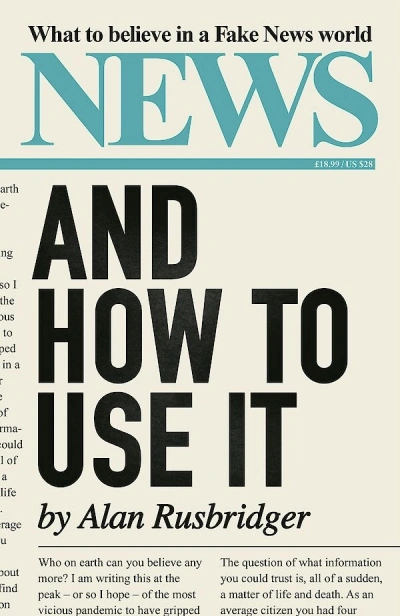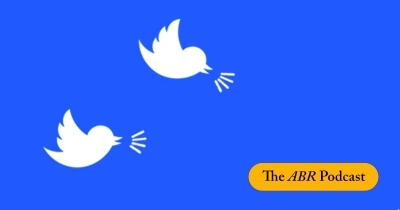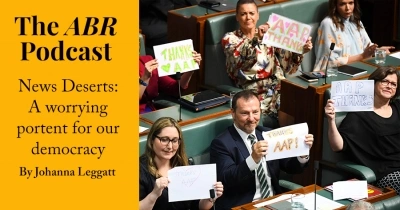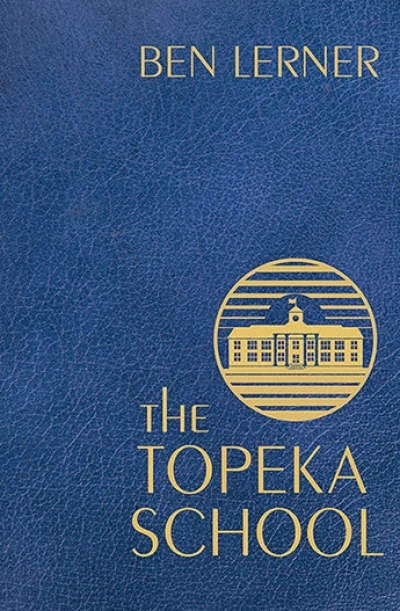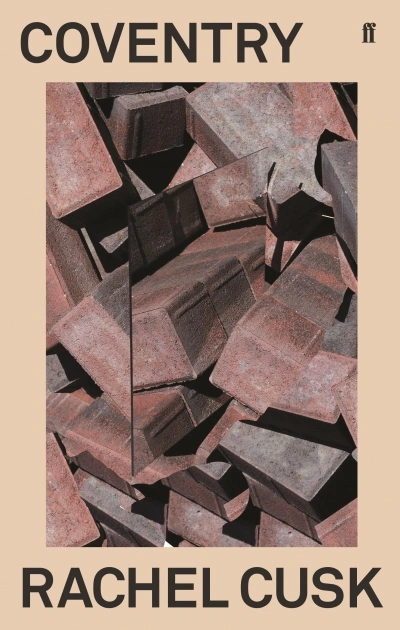Accessibility Tools
- Content scaling 100%
- Font size 100%
- Line height 100%
- Letter spacing 100%
Johanna Leggatt
Australia’s Pandemic Exceptionalism: How we crushed the curve but lost the race by Steven Hamilton and Richard Holden
News and How to Use It: What to believe in a fake news world by Alan Rusbridger
In today's episode, Johanna Leggatt speaks to ABR Editor Peter Rose about growing disquiet about ‘cancel culture’, censorious voices on social media, and Twitter's threat to writers and journalists. Beginning with the recent case of Rachel Baxendale, a journalist at The Australian, who was subjected to much invective because of her persistent questions about the quarantine fiasco in Victoria, Leggatt laments the ‘routine trashing of reputations on Twitter’ and wonders why Twitter has ‘devolved into a channel for our most juvenile emotions’.
... (read more)The problem of belonging: The Twitter mob is a threat to writers and journalists
In early August, deep in the winter of Melbourne’s stage-four discontent, journalist Rachel Baxendale became the story. The Victorian political reporter for The Australian newspaper was attacked online for questioning Premier Daniel Andrews on his government’s hotel quarantine program, as an explosion of new coronavirus infections caused unprecedented economic shutdown and the curtailment of civil liberties. As thousands of people watched the premier’s live press briefings from their living rooms, Baxendale assiduously probed Andrews about the use of security guards instead of Australian Defence Force personnel to guard returned travellers.
... (read more)The imminent closure of Australian Associated Press, or AAP, has sounded alarm bells for many citizens and journalists already worried about the lack of media diversity in Australia. AAP has long played a fundamental role in investigative journalism, which we need more than ever in an age of government intrusion, evasion, and over-reach. Johanna Leggatt, a journalist who has worked for Fairfax, News Corp, and AAP, writes about this troubling threat to journalism.
... (read more)During my first month as a trainee journalist at The Sun-Herald newspaper in Sydney, I went on strike. It was the year 2000, and the newspaper enjoyed a full roster of reporters and photographers dedicated solely to one edition each Sunday, yet even during this well-resourced period there were inklings of the headwinds to come.
... (read more)



